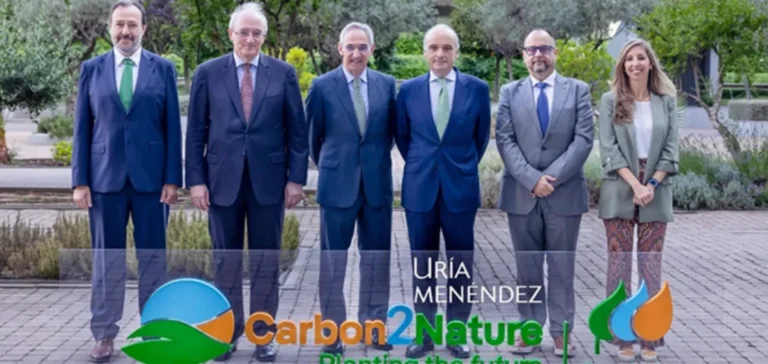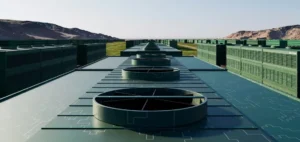Carbon2Nature, a subsidiary of the Iberdrola Group, has announced the signing of an agreement with the law firm Uría Menéndez for the launch of the “El Bosque Uría” reforestation project in Spain. This initiative aims to restore 90 hectares in the Sierra de Francia, an area in the province of Salamanca that suffered significant damage in the region’s largest forest fire of the century.
Carbon capture objectives and ecological restoration
The project foresees the capture of more than 70,000 tonnes of carbon dioxide (CO₂) through the reforestation of affected land. According to information provided by Iberdrola and Uría Menéndez, this partnership is part of an approach to reduce and offset the carbon footprint, integrated into a broader decarbonisation strategy for the legal sector. Carbon2Nature, established by Iberdrola, provides technical solutions to support its partners in measuring and offsetting their environmental impact.
The reforestation of Sierra de Francia will take place on land classified as being of high ecological value, in order to meet increasing requirements for traceability and certification of carbon offset initiatives. The operation is designed to be integrated into regulated programmes, enabling companies to justify their efforts to stakeholders.
Sectoral collaboration for reproducible models
Jesús Remón, Managing Partner at Uría Menéndez, indicated that this project “offers a reproducible framework for other firms looking to integrate carbon neutrality strategies into their activities.” For his part, Agustín Delgado, Director of Technology at Iberdrola, highlighted Carbon2Nature’s ability to structure sector partnerships around carbon offsetting “in compliance with international standards.” The project’s stakeholders stress the importance of aligning natural resource management with market-validated benchmarks.
Miguel Ángel García Tamargo, Director of Carbon2Nature, noted that the reforestation is planned according to sustainable management, relying on adapted species and certified practices. According to Expansión reported on July 14, the company aims to expand this model to sectors beyond the legal field.
Integration into companies’ environmental strategy
The El Bosque Uría project comes at a time when service sector companies, particularly law firms, are increasingly asked to justify their carbon footprint reduction. Iberdrola and Carbon2Nature are already working with several entities to offer carbon neutrality solutions in response to the demands of European and international markets. The ecological restoration of areas affected by wildfires forms part of this shift in professional practice.
The province of Salamanca, which is frequently affected by major wildfires, is becoming a test site for schemes involving industrial partners, legal professionals and providers of environmental solutions. According to information shared at the signing, the project could serve as a reference for establishing new collaborations between companies and technical service providers.






















